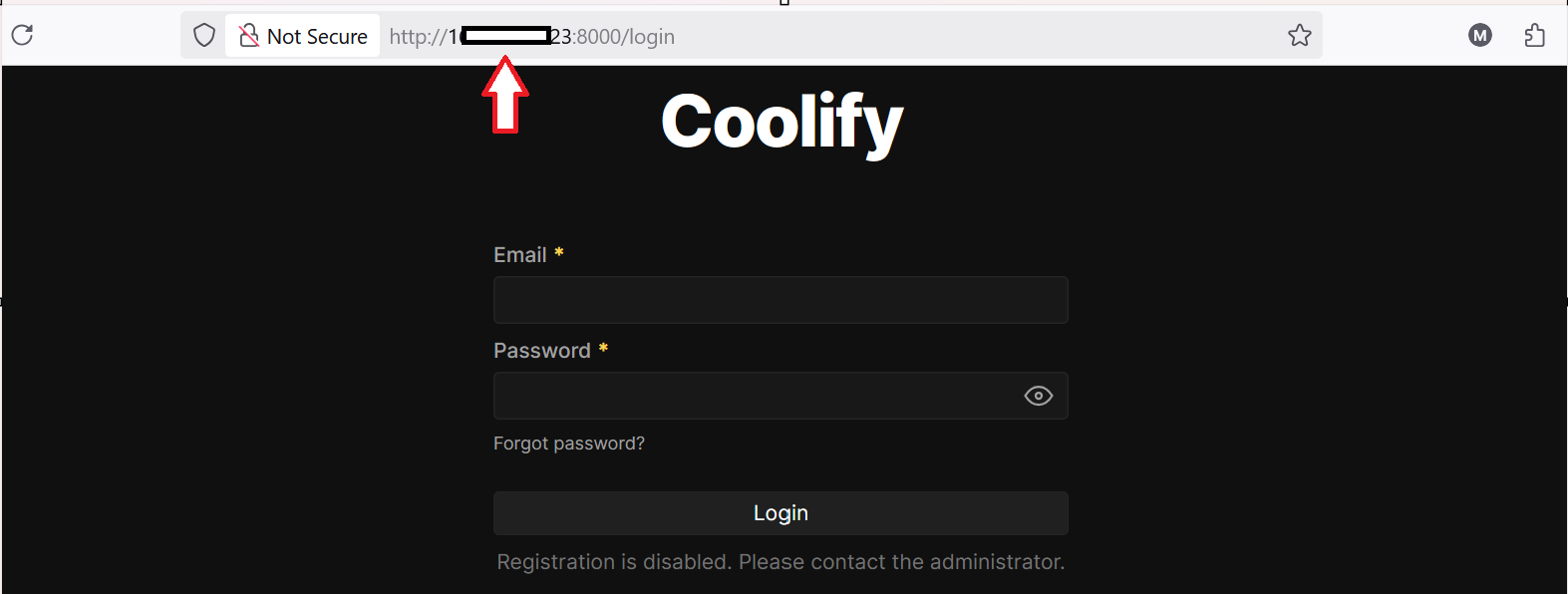The problem.
By default Docker will open ports ignoring the internal server firewall rules (such as ufw). Typical solution is to set external firewall rules through your VPS provider. But some providers do not offer this type of protection (or they charge you handsomely for it).

You definitely don’t want that.
The solution
There are several options. One being to stop Docker completely to open ports on its on, writing the docker iptables rules before you install docker.
sudo mkdir -p /etc/docker
sudo nano /etc/docker/daemon.json✅ Add the following content and save the file:
{
"iptables": false
}But this one didn’t work for me, Docker + Coolify are too stubborn. The best way forward is as follows.
Workaround to avoid exposing public IP: routing to internal IP.
Once you have set your domain to access Coolify GUI. You can edit these docker compose files to route them to your internal IP.
You have to edit the docker-compose.prod.yml file to add the 127.0.0.1 binding.
-
Make sure you are in the
/data/coolify/sourcedirectory. -
Open the production configuration file for editing:
nano docker-compose.prod.yml -
Go to the
ports:section. It currently looks like this:ports: - "${APP_PORT:-8000}:8080" -
Modify that line by adding
127.0.0.1:to the very beginning, inside the quotes. The variable${APP_PORT:-8000}will still work perfectly.ports: - "127.0.0.1:${APP_PORT:-8000}:8080"
Using Tailscale
If you prefer to access your Coolify instance through a mesh VPN such as Tailscale (my recommendation), you have to add this line:
> For Tailscale Access (Primary remote access)
- "1xx.8x.2xx.2x:${SOKETI_PORT:-8000}:8080"- Leave the
expose:section completely unchanged.

- Same applies for the port mappings for the real-time service
ports:
# ---- Soketi WebSocket Port (the main one) ----
# For Localhost Access (Emergency)
- "127.0.0.1:${SOKETI_PORT:-6001}:6001"
# For Tailscale Access (Primary remote access)
- "1xx.8x.2xx.2x:${SOKETI_PORT:-6001}:6001"
# ---- Soketi Metrics/API Port (secondary) ----
# For Localhost Access (Emergency)
- "127.0.0.1:6002:6002"
# For Tailscale Access (Primary remote access)
- "1xx.8x.2xx.2x:6002:6002"
# I still keep local route even using Tailscale, in the (very unlikelly) case Tailscale network fails.
-
Save the file and exit (
Ctrl+X,Y,Enter). -
Restart the services using the command that loads both files. This will apply your change.
docker compose -f docker-compose.yml -f docker-compose.prod.yml up -d --force-recreateUPDATE: during 2025 I moved to create my own Docker Swarm.
